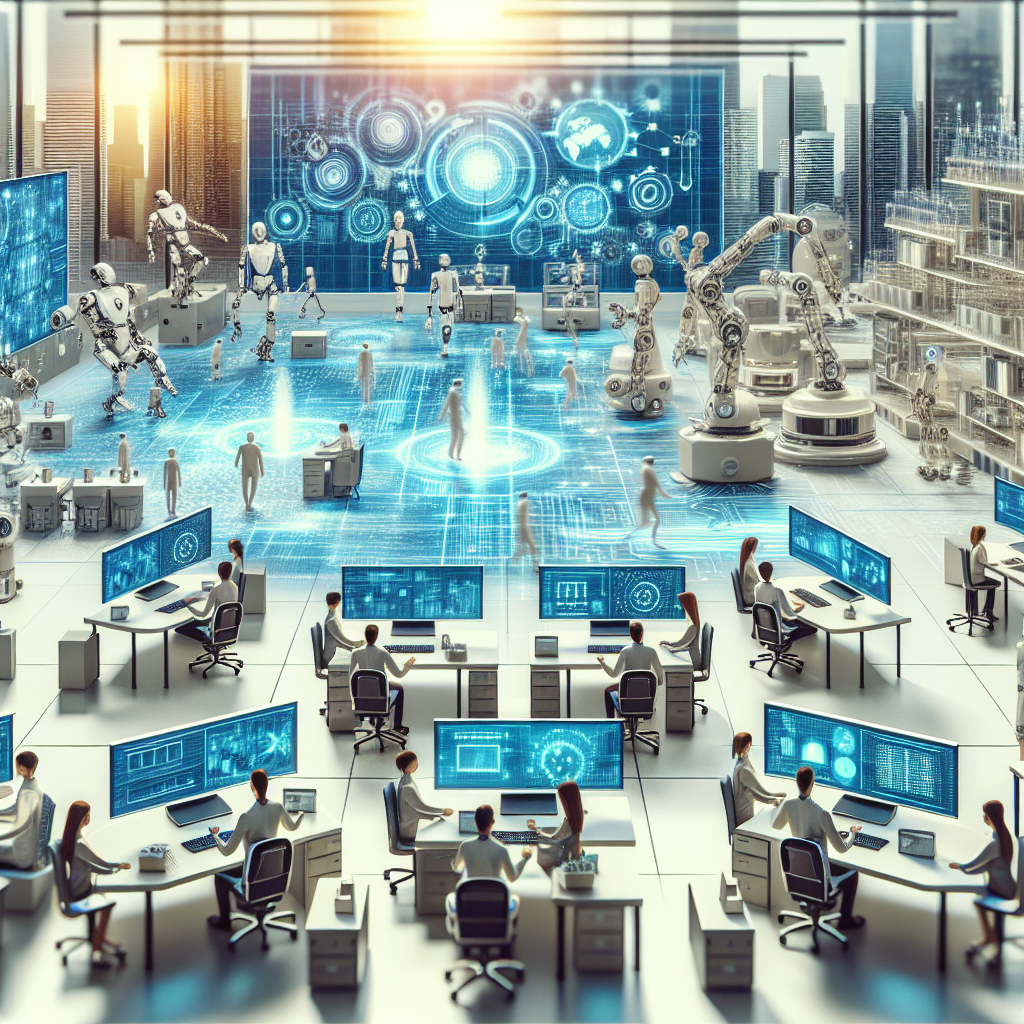AI and the Future of Work: Preparing for Automation and Job Disruption
Artificial intelligence (AI) is rapidly transforming the way we work, with automation becoming more prevalent in various industries. While AI has the potential to increase productivity and efficiency, it also raises concerns about job displacement and the impact on the workforce. As we navigate this new era of automation, it is crucial for businesses and individuals to prepare for the changes that lie ahead.
The Rise of AI in the Workplace
AI technology is already being used in a wide range of industries, from manufacturing and healthcare to finance and marketing. Machine learning algorithms are being employed to automate repetitive tasks, analyze data, and make predictions. Chatbots are being used to provide customer service, while robots are being used in warehouses to handle inventory management.
As AI continues to advance, more jobs are at risk of being automated. According to a report by the McKinsey Global Institute, up to 375 million workers worldwide may need to switch occupational categories by 2030 due to automation. This shift is expected to impact both low-skilled and high-skilled workers, as AI technology becomes more sophisticated and capable of performing complex tasks.
Preparing for Automation and Job Disruption
As the workforce undergoes significant changes due to automation, it is essential for businesses and individuals to prepare for the future. Here are some strategies for navigating the challenges posed by AI and automation:
1. Upskilling and Reskilling: With automation displacing certain jobs, it is crucial for workers to acquire new skills that are in demand. Upskilling and reskilling programs can help employees transition to new roles and stay relevant in the changing job market. Employers can provide training opportunities for their workforce to ensure they are equipped to handle the demands of AI technology.
2. Embracing Creativity and Innovation: While AI can automate many routine tasks, it cannot replace human creativity and innovation. Encouraging employees to think critically and come up with new ideas can help businesses stay competitive in a rapidly evolving landscape. Embracing a culture of creativity and innovation can also help workers adapt to changing job roles and responsibilities.
3. Collaborating with AI: Rather than viewing AI as a threat to their jobs, workers can learn to collaborate with AI technology to enhance their productivity. By leveraging AI tools and algorithms, employees can streamline their workflows, make better decisions, and improve their performance. Businesses can also use AI to augment their workforce and achieve better outcomes in areas such as customer service, marketing, and sales.
4. Redefining Job Roles: As automation reshapes the workforce, businesses may need to redefine job roles and responsibilities to align with the capabilities of AI technology. This may involve creating new positions that focus on managing and optimizing AI systems, as well as integrating AI into existing roles to enhance efficiency and effectiveness. By reevaluating job roles, businesses can ensure that their workforce remains agile and adaptable in the face of automation.
5. Investing in Ethical AI: As AI technology becomes more prevalent in the workplace, it is essential to prioritize ethical considerations and ensure that AI systems are deployed responsibly. Businesses should establish guidelines for the use of AI technology, including data privacy, transparency, and accountability. By investing in ethical AI practices, organizations can build trust with employees and customers and mitigate the risks associated with automation.
Frequently Asked Questions about AI and the Future of Work
Q: Will AI technology replace all jobs in the future?
A: While AI has the potential to automate many tasks, it is unlikely to replace all jobs entirely. Instead, AI technology is expected to augment human capabilities and create new opportunities for collaboration and innovation.
Q: How can workers prepare for automation and job disruption?
A: Workers can prepare for automation by upskilling and reskilling, embracing creativity and innovation, collaborating with AI technology, redefining job roles, and investing in ethical AI practices.
Q: What are the benefits of AI in the workplace?
A: AI technology can increase productivity, efficiency, and accuracy in the workplace. It can automate routine tasks, analyze data, make predictions, and provide insights that can help businesses make informed decisions.
Q: What are the risks of AI in the workplace?
A: The risks of AI in the workplace include potential job displacement, data privacy concerns, bias in AI algorithms, and ethical implications of automation. It is essential for businesses to address these risks and prioritize responsible AI practices.
Q: How can businesses leverage AI technology to stay competitive?
A: Businesses can leverage AI technology to streamline workflows, make better decisions, improve customer service, enhance marketing and sales efforts, and drive innovation. By integrating AI into their operations, businesses can stay ahead of the curve and achieve sustainable growth.
In conclusion, AI technology is reshaping the future of work, with automation becoming more prevalent in various industries. While AI has the potential to increase productivity and efficiency, it also raises concerns about job displacement and the impact on the workforce. By preparing for automation and job disruption, businesses and individuals can navigate the challenges posed by AI technology and thrive in an increasingly automated world. By upskilling and reskilling, embracing creativity and innovation, collaborating with AI, redefining job roles, and investing in ethical AI practices, we can harness the power of AI technology to create a more sustainable and inclusive future of work.

